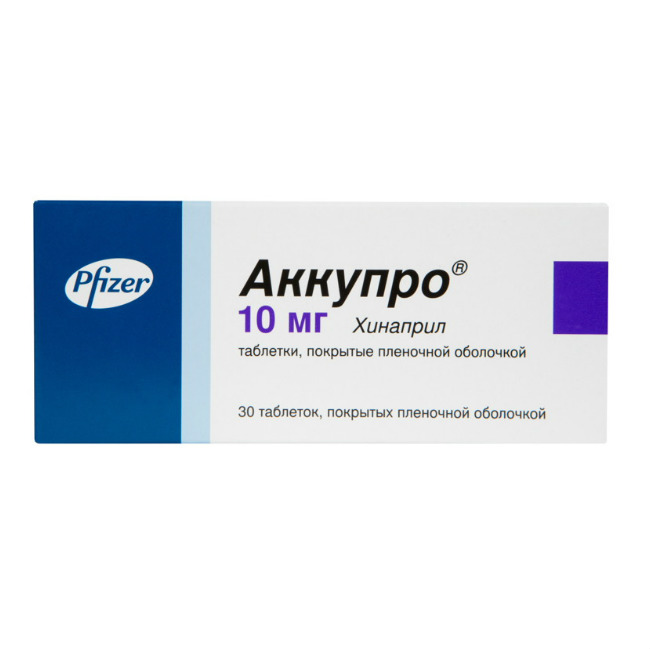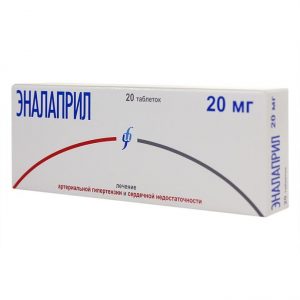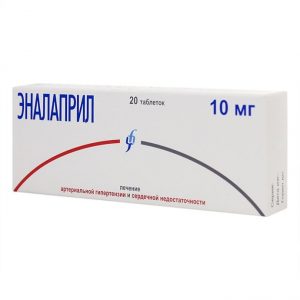Description
Latin COM dklfrd21, Latin name pklbrd6rd
Packing
30 pcs.
Pharmacological action
Accupro is an antihypertensive drug, an ACE inhibitor.
Special instructions
Caution must be exercised when prescribing to patients with reduced BCC (including as a result of diuretic therapy, while limiting NaCl intake, hemodialysis, diarrhea and vomiting) because of the increased risk of developing a sudden decrease in blood pressure after even initial doses of ACE. Transient hypotension is not a contraindication to continue treatment with the drug after stabilization of blood pressure (dose should be reduced). In the case of an excessive decrease in blood pressure, the patient is transferred to a horizontal position with a low headboard, if necessary, saline is infused (to increase the volume of bcc). Before starting treatment, it is necessary to cancel the previous diuretic therapy in 2-3 days, except for patients with malignant or difficult to treat hypertension. In these patients, the use of hinapril can be started immediately, in a reduced dose, under close medical supervision (within 2 hours after administration and an additional 1 hour before blood pressure stabilization) and a careful increase in dose. Patients with malignant arterial hypertension or concomitant severe heart failure should begin treatment in a hospital setting. Before starting therapy with ACE inhibitors, it is necessary to count the total number of leukocytes, as well as monitor the leukocyte formula once a month for the first 3-6 months of treatment, and at periodic intervals of up to 1 year in patients with an increased risk of neutropenia (in case of impaired renal function, systemic diseases connective tissue in those receiving high doses, at the first sign of infection). Before and during treatment, monitoring of blood pressure, renal function, plasma K + content, monitoring of Hb content in peripheral blood, creatinine, urea, and monitoring of the concentration of electrolytes and liver enzymes in the blood are necessary. The use of dialysis membranes AN69 in combination with ACE inhibitors is not recommended (due to the possibility of the development of anaphylactoid reactions in patients). For newborns who were exposed to intrauterine exposure to ACE inhibitors, careful monitoring is recommended to detect hypotension, oliguria and hyperkalemia. In oliguria, it is necessary to maintain blood pressure and renal perfusion by introducing appropriate fluids and vasoconstrictors. In newborns and infants, the risk of developing oliguria and neurological disorders is associated with a decrease in renal and cerebral blood flow, due to the decrease in blood pressure caused by ACE inhibitors in this case, it is recommended to use lower initial doses and close monitoring. Care must be taken when driving vehicles or performing other work requiring increased attention, as dizziness is possible, especially after an initial dose of an ACE inhibitor in patients taking diuretics. Caution should be exercised when performing exercise or in hot weather due to the risk of dehydration and hypotension due to a decrease in fluid volume. Before surgery (including dentistry), it is necessary to warn the surgeon / anesthetist about the use of ACE inhibitors.
Composition
1 coated tablet contains 10 mg of quinapril hydrochloride.
excipients: magnesium carbonate, magnesium stearate, lactose, gelatin, crospovidone, hydroxypropyl methylcellulose, hydroxypropyl cellulose, titanium dioxide, macrogol 400, candelila wax, Opadry White OY-S-7331.
Dosage and administration of
When administering hypertension monotherapy, the recommended initial dose of quinapril in patients not receiving diuretics is 10 mg or 20 mg 1 time / day. Depending on the clinical effect, the dose can be increased to a maintenance dose of 20 mg or 40 mg / day, which is usually prescribed in 1 dose or divided into 2 parts. As a rule, the dose should be changed at intervals of 4 weeks. In most patients, adequate control of blood pressure during long-term treatment can be achieved by using the drug 1 time / day. In some patients, the dose of quinapril reached 80 mg / day.
Side effects
From the side of the central nervous system and peripheral nervous system: dizziness, weakness, headache are rare – paresthesia, mood and sleep disturbances.
From the cardiovascular system: possible arterial hypotension rarely – tachycardia.
From the digestive system: possible dyspeptic symptoms (including dry mouth, impaired appetite) rarely – stomatitis, abdominal pain, pancreatitis, cholestatic jaundice.
From the side of metabolism: possible hyperkalemia, hyponatremia rarely – proteinuria, increased levels of urea and creatinine in the blood (mainly in patients with impaired renal function).
From the respiratory system: dry cough, bronchitis, rhinitis are possible.
From the hemopoietic system: rarely – neutropenia, agranulocytosis, thrombocytopenia, anemia.
From the urinary system: impaired renal function.
From the reproductive system: rarely – impotence.
Allergic reactions: skin rash, angioedema, and other hypersensitivity reactions are possible.
Dermatological reactions: rarely – alopecia.
Other: rarely – muscle cramps.
Drug interactions
Antihypertensive, diuretic, opioid analgesics, general anesthetic agents enhance the hypotensive effect. NSAIDs, salt – weaken the effect. Potassium preparations, potassium-sparing diuretics (amiloride, spironolactone, triamteren) – increase the risk of hyperkalemia. Enhances the action of ethanol, slows down the excretion of Li +. Enhances the hypoglycemic effect of sulfonylurea derivatives, insulin. Increases the risk of developing leukopenia with simultaneous use with allopurinol, cytotoxic drugs, immunosuppressants, procainamide. Estrogens weaken the hypotensive effect due to fluid retention. Bone marrow depression medications increase the risk of neutropenia and / or agranulocytosis, even fatal.
Overdose
Symptoms: marked decrease in blood pressure, dizziness, weakness, visual impairment.
Treatment is symptomatic. The patient should take a horizontal position, it is advisable to carry out intravenous infusion using 0, 9% sodium chloride solution (in order to increase bcc).
Hemodialysis and peritoneal dialysis are not effective.
Storage conditions
The product should be stored in a dry, dark place at a controlled room temperature (15 ° to 30 ° C).
Expiration
3 years.
active substance
Quinapril
For
For adults as prescribed by a doctor
Indications
Indications
heart failure, hypertension




